- Clinical Care
- Education
- Centers
- Research

Wheytnie Alexandre, M.D. obtained her medical degree from the University of Pittsburgh School of Medicine, concentrating on global health and underserved populations. Throughout her training, she worked in South Africa, India, and England. After medical school, she continued her training in Internal medicine at NYU-Bellevue Hospital in New York City.
Her primary objective is to become an exceptional internist who can provide optimal patient care and a global health researcher and leader. She is currently a fellow at the Cornell Health Equity Fellowship in the Global Health track. She wants to focus her research on non-communicable diseases, particularly cardiovascular and metabolic diseases.
She is interested in researching traditional and endemic risk factors for cardiovascular disease and how to mitigate these risks in resource-poor settings. She would also like to explore barriers to effective implementation strategies for preventing cardiovascular disease in low-income countries, with a particular focus on Haiti.
In her free time, she loves to go to the ballet, watch fashion shows, watch reality TV, and travel.

Koeun Choi, MD is a clinician-researcher who is interested in primary care delivery, implementation science, and community based participatory research. Her focus includes understanding the contemporary needs of refugee, asylum seeking, and immigrant populations in the United States. She completed her Internal Medicine training and was a Chief Resident at Yale where she invested her time at the Yale Refugee Clinic, helped create the Advocacy Curriculum in ambulatory education, and worked as the Clinical Policy Fellow at the Department of Social Services for the State of Connecticut. She completed her undergraduate and medical school studies through the BS/MD program at Stony Brook University. During this time, she focused on working in rural communities with community health workers while exploring different models of healthcare delivery in low resourced countries. Her work included Soil Transmitted Helminthiasis epidemiological studies in Madagascar and HIV/TB community outreach programs in South Africa, as a Doris Duke Clinical Research Fellow. She hopes to continue to work with vulnerable communities while advancing primary care delivery and access to the immigrant populations of New York City.

Nicole Kelly, M.D. is preparing to enter her second year of the Cornell Health Equity Research Fellowship and in July 2024 will graduate from my pediatric hospital medicine fellowship. Her clinical and research passions lie in pediatric somatic symptom and related disorders (SSRDs). During her clinical training, SSRD cases were some of the most challenging and heart-breaking cases in which she was involved. She witnessed profound patient suffering, both physical and mental, only worsened by provider misunderstanding and bias and societal stigmatization. Dr. Kelly saw how fragmented and suboptimal care can lead to poor outcomes and significant healthcare over-utilization. She looked through the literature to better educate and empower herself to care for this patient population, which only highlighted the large gaps in knowledge that exist. She wants to better understand how we can prevent hospitalization for children with SSRDs by looking more closely at children who ultimately do end up admitted for their symptoms, explore provider biases that may impact our ability to provide optimal care, and address barriers to successfully transitioning SSRD treatment from inpatient to outpatient settings. This work cannot be done without recognizing the many ways in which sociodemographic characteristics may impact the way SSRDs are evaluated and managed; although disparities related to gender, race, culture, or insurance have yet to be studied in this field, she hopes to address those gaps as she moves forward with her career to ultimately advocate for more effective, compassionate, and equitable care. The Cornell-Health Equity Research Fellowship has provided her an incredible opportunity to deepen my understanding of healthcare delivery and epidemiology to incorporate impactful, innovative, and patient-centered research into her hospitalist career.

Alia Komsany, DPhill, MSc, BSc, has always had a deep interest in translational research, namely the bidirectional continuum from bench to bedside and community. Despite mapping out an initial basic science career trajectory, doing a PhD specialising in cancer vascularisation, she came to realise during her former position as postdoctoral associate in the Department of Pathology at WCM, how much she could contribute directly and visibly outside the laboratory environment.
Being fortunate enough to have been appointed a dual role – post doc and supporting member of the office of community outreach and engagement. she had first-hand experience engaging in the field of public health equity, and it was here that she began considering an alternative career path, one that would leverage community engaged research to improve patient education and achieve health equity. Coming from a mixed ethnic minority background, her lived experience of health disparities that are often accentuated by systemic issues that permeate and frustrate, the prevention, diagnosis, and treatment of disease, further ignited her interest in public health equity.
Having served as a mentor for two consecutive years on the summer internship program run by Weill Cornell’s Center for Cancer and Precision Medicine to help increase access to STEM and which incorporates an enrichment program for students from low-income backgrounds. She was able to develop a practical-based curriculum covering a personal topic of interest, infectious diseases, and cancer (with emphasis on HPV and H Pylori) with a special focus on disparities. These experiences further propelled by research interest in cancer prevention and control research with a special emphasis on HPV. Furthermore, utilising youth as multigenerational agents of change while placing the community at the front and center is what drives both the design, approach and implementation of both projects she is working on.
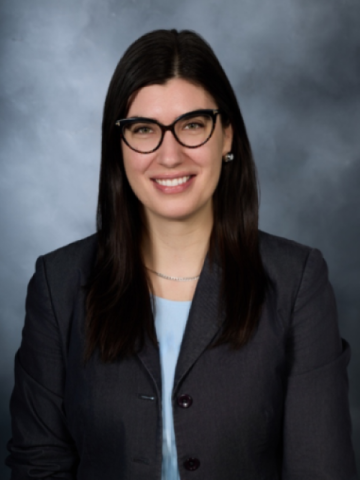
Amy McMenamin, MPhil, BSN, RN, PhD, focuses on service utilization patterns among older adults with multiple chronic conditions, and explores the impact of improved working conditions for nurse practitioners on patient outcomes. She conducted her doctoral research at Columbia University School of Nursing where her work was funded by an R36 dissertation grant award from the Agency for Healthcare Research and Quality. Dr. McMenamin is also a registered nurse with a clinical background in emergency and trauma nursing.
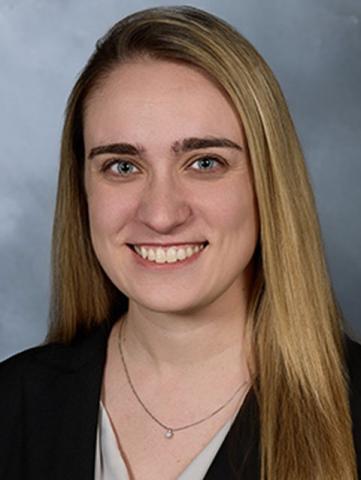
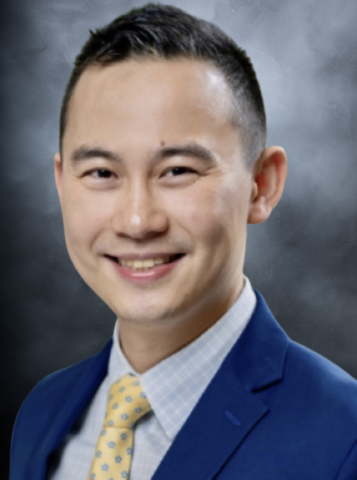
Han-Wei Wu, M.D. is a joint pediatric hematology/oncology fellow at Memorial Sloan Kettering Cancer Center and New York Presbyterian Hospital – Weill Cornell Medicine. His research focuses on investigating the late effects of treatments in children, adolescents, and young adults with cancer, with particular interests in implementing equitable interventions and optimizing cancer care delivery to improve health outcomes. As a fellow in the Cornell – Hunter Health Equity Research Fellowship, Dr. Wu is excited to investigate innovative approaches to enhance care transitions from the time of cancer diagnosis through survivorship, particularly for adolescent and young adult cancer patients. He graduated from the Feinberg School of Medicine at Northwestern University in Chicago and completed his pediatrics residency training at the University of Illinois Chicago as part of the Accelerated Research Pathway of the American Board of Pediatrics.

Holly R. Tomlin, JM, MPH received her international public health degree from Tulane University School of Public Health & Tropical Medicine in New Orleans, LA. Subsequently she continued to work in New Orleans as a data scientist and clinical research coordinator and then as a field epidemiologist/program manager in Democratic Republic of Congo. Later, Ms. Tomlin worked as a medical writer in the biopharmaceutical industry and for public health agencies. She recently graduated from Emory University Law School with a Juris Master in legal studies and legal research.
Ms. Tomlin is currently a PhD student in Health Law, Policy and Management at Meharry Medical College, School of Global Health where she will study the ramifications of health law and policy on social structures that promulgate poor health outcomes, particularly cardiometabolic disorders (diabetes, obesity and hypertension). As a Research Fellow at Weill Cornell Medicine, Ms. Tomlin incorporates into her research the Political Determinants of Health and the WHO Commission on Social Determinants of Health frameworks, while working on initiatives to bridge community health and academic medicine.
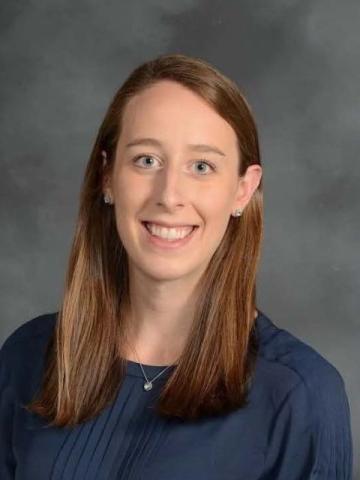

Alisha Akinsete, MD is a Pediatric Rheumatology Health Equity Research Fellow at the Hospital for Special Surgery with a clinical focus on healthcare disparities in pediatric rheumatology who will be joining faculty this academic year. She completed her pediatric rheumatology training at the Children’s Hospital at Montefiore July 2022.
In 2016 Dr. Akinsete received her Doctor of Medicine at the Rutgers New Jersey Medical School in Newark, NJ. She also completed her residency training at Westchester Medical Center at the Maria Fareri Children’s Hospital in 2019.
During residency, she initiated and developed a new Diversity and Inclusion Program in her pediatric residency program. With the success of the program, she was awarded the Program Director Award for her work in the Diversity and Inclusion Program. During her fellowship, she was inducted to the Leo. M Davidoff Society of Albert Einstein College of Medicine for outstanding achievement in the teaching of medical students. She was also inducted into the Alpha Omega Alpha (AΩA) Honor Medical Society. She is an active member of the American College of Rheumatology and the Diversity and Inclusion Task Force Subcommittee, CARRA Childhood Arthritis and Rheumatology Research Alliance (CARRA) Diversity Equity and Inclusion Committee, as well as the Health Equity Research workgroup. She also wrote a chapter on pediatric rheumatology health disparities. Dr. Akinsete has published her work on implicit bias in juvenile idiopathic arthritis (JIA) and working on identifying racial and ethnic differences in the delivery of quality care to lupus nephritis patients. Dr. Akinsete is a Black Dominican pediatric rheumatologist with a history of childhood-onset LN who can empathize with her patients' plights, and her ultimate goal is to eliminate racial and ethnic disparities in this population.
Dr. Akinsete is board-certified by the American Board of Pediatrics in pediatrics and pediatric rheumatology and is a member of numerous professional societies, including the American College of Rheumatology, the American Academy of Pediatrics, and the Childhood Arthritis and Rheumatology Research Alliance.

Serena Flaherty, MSN, APRN, CPNP, PhD is a nurse scientist focused on investigating interventions to reduce health inequities among racially and socioeconomically marginalized adolescents. This includes a specific focus on reducing inequities related to reproductive health and life course outcomes among this population. Before beginning her research career, she spent over a decade working as a pediatric nurse practitioner (PNP), with a clinical focus on providing primary care for medically underserved adolescents in New Haven, CT and New York City. She provided care to adolescents from diverse backgrounds, many of whom engaged in high-risk behaviors. Her clinical experiences with this population gave her insight into the complex ways in which social determinants of health, cultural barriers, and decision-making in adolescence can impact sexual health outcomes. In addition, Serena Flaherty worked for five years as an independent clinical consultant for two large public health organizations in New York City to evaluate and improve adolescent family planning initiatives. Through these experiences, she observed health inequities and significant gaps in reproductive health care for teens. Her research interests have developed directly from her clinical and public health experiences, and she expanded her knowledge and research expertise through her doctoral program.
Serena Flaherty is currently a Co-Investigator of a randomized controlled trial, funded by Health and Human Services Office of Population Affairs, to test the effectiveness of a videogame intervention to improve contraceptive use among Black and Latinx adolescents in NYC, a priority population overburdened by unintended pregnancy and sexually transmitted infections. Her research focuses on identifying structural and clinical barriers to contraceptive services, particularly among racially and ethnically marginalized adolescents, and her long-term goal is to identify and develop intervention strategies to promote adolescent reproductive health equity.
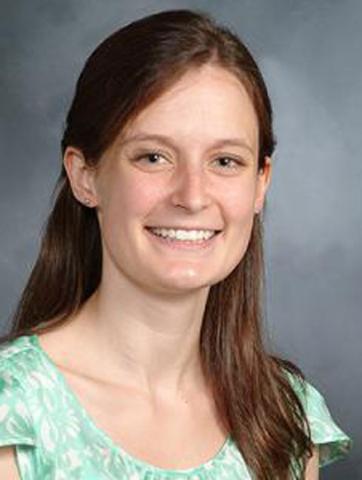
Laura Frances Gingras, MD is a general internist and faculty member at Weill Cornell Medicine. She completed her medical degree at Emory University School of Medicine, went on to complete a residency in internal medicine at New York Presbyterian-Weill Cornell Medicine, and then served an additional year as a chief resident. She then spent eight years as a practicing primary care doctor and clinician educator at Weill Cornell before embarking on her current pathway toward a career in health services research. Her research area is in improving care delivery in primary care settings. Her has a strong interest in doctor-patient communication, patient education, and shared decision-making, particularly in the context of chronic disease management and prevention. The inspiration for her interest in health equity came from the experiences of her patients and the struggles they have faced in trying to achieve good health in a broken and dysfunctional healthcare system. She has seen up close how difficult – and even impossible – it can be to successfully navigate our profit-driven medical environment, in which so much of the care one has access to depends on one’s financial and employment status, with the result that the people from the most marginalized and vulnerable groups suffer the worst health outcomes. The experiences of her patients have made her want to contribute to change in this system.

Jin-Young Han, MD, PhD passion for health equity research was ignited during the COVID-19 pandemic. Witnessing the unmistakable disparities that came to light with SARS-CoV-2 infection risks and health outcomes in our country underscored the urgent need to address these inequities. He believes that everyone deserves equitable access to high-quality healthcare. Although his previous training was in bench research and he spent last few years providing clinical care, is now committed to advancing health equity through rigorous research using large electronic health records databases. His research focuses on identifying inequities and potential solutions in diagnosis and care of children with infections such that we can bridge the gaps in healthcare access and outcomes for all children before the next pandemic.

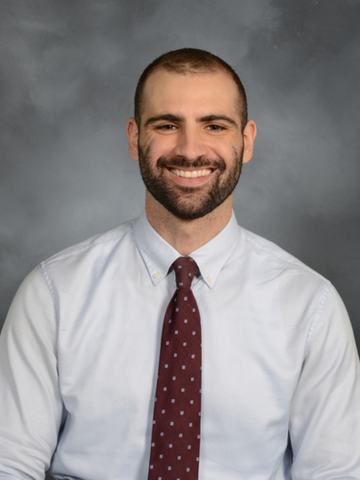
Christopher J. Gonzalez, MD, MS, Assistant Professor of Medicine in the Division of General Internal Medicine, was the inaugural Health Equity Research Fellow at Weill Cornell Medicine. His research aims to understand and leverage social and cultural behaviors to improve the health of diverse Hispanic populations in the United States. Through collaborations with investigators of the national Hispanic Community Health Study/Study of Latinos (SOL), the Duke Network Analysis Center (DNAC), and the New York Regional Center for Diabetes Translation Research (NY-CDTR), he has explored the heterogeneity of health behaviors and health outcomes of the Hispanic population, with a specific focus on understanding the roles of acculturation and social connectedness. His research predominantly assesses how these factors relate to inequities in cardiometabolic health, including obesity and diabetes prevention, but has also assessed their relation to COVID-19 and Hepatitis C. Dr. Gonzalez has received funding from the NIDDK and NHBLI, and received the Robert Wood Johnson Foundation's Harold Amos Medical Faculty Development Program Award in 2024. His research is informed by his practice of primary care at Settlement Health, a federally qualified health center in East Harlem.
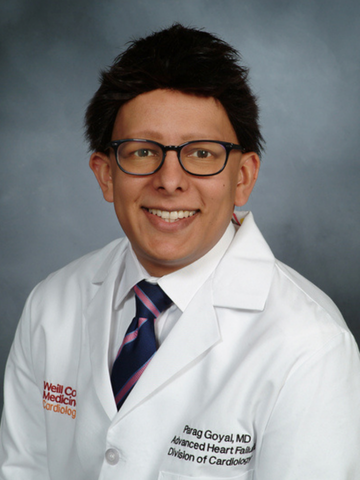
Dr. Goyal’s work focuses on quality of life and well-being in older adults with heart failure, with a focus on deprescribing medications. He has been funded by the Merle Samuels Foundation, AHA, and NIA since joining the faculty of General Internal Medicine.

Ro-Jay Reid, MD is a board-certified Internal Medicine physician with a profound commitment to advancing healthcare equity. He began his academic journey with an undergraduate degree in Biochemistry from Oakwood University and obtained his medical degree from Ross University School of Medicine. Driven by his passion for patient care, he completed his residency in Internal Medicine at St. Joseph’s University Medical Center before joining Weill Cornell Medicine (WCM) in 2021 as an Instructor in Medicine and a Cornell-Hunter Health Equity Research Fellow in the Master’s of Science in Clinical Epidemiology and Health Services Research program.
Dr. Reid's research focus stems from his humanitarian work in underserved regions such as Haiti and Mozambique. His interests lie in addressing health disparities and promoting healthy aging. Currently, he serves as the principal investigator for three pivotal projects. Two of these projects are part of the REasons for Geographic And Racial Differences in Stroke (REGARDS) studies, examining the impact of various social determinants of health on quality of life and mobility. His third project explores the definition, barriers, and facilitators of healthy aging, particularly in individuals with heart failure in both affluent and non-affluent communities.
Dr. Reid's association with the Cornell-Hunter Health Equity Research Fellowship program has led to several notable achievements, including:
• Successful completion of the WCM Diversity Leadership Fellowship in 2023.
• Recipient of the NIH Loan Repayment Program Award in 2023.
• Grant recipient of the American Heart Association Research Supplement to Promote Diversity in Science in 2022.
• Notable oral presentation at the National Research Service Award webinar.
• Notable poster presentation at the Society of General Internal Medicine (SGIM).
• HRSA T32HP42021 – Research fellow.
Dr. Reid is now set to join the department as an Assistant Professor of Medicine under the mentorship of Drs. Safford, Goyal, and W. M. Lambert.
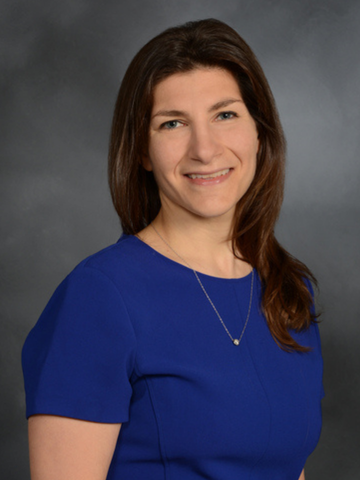
Dr. Sterling’s work focuses on how to integrate home health aides into the medical care team. She received funding from AHA and Engaged Cornell during fellowship, and RWJ Foundation and NHLBI since joining the faculty of General Internal Medicine.
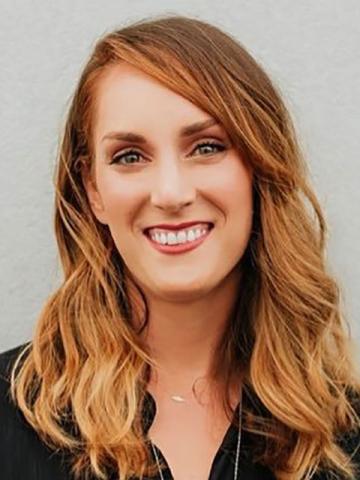
J. Stewart, PhD graduated the Cornell-Hunter Health Equity Reseach Fellowship in March 2024. Her research is geared towards the development of couples-focused interventions to bolster postpartum planning and preparation as a means to improve postpartum mental health. Pregnant people identify their relationship partners as their primary source of support; however, partners are rarely meaningfully engaged in perinatal care nor are they given the tools to effectively optimize their role as key support persons during this transitional and often disorienting time. Thus, she is currently conducting research to support the development of future couples-focused interventions to promote perinatal mental health.